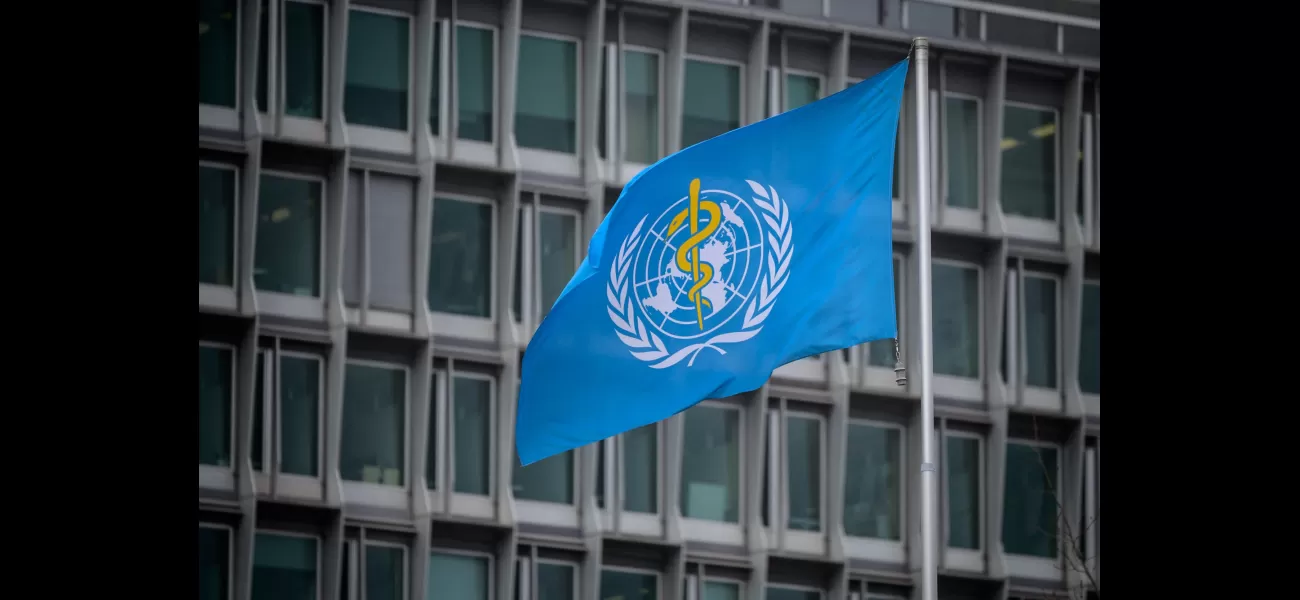WHO is meeting to discuss declaring monkeypox a global emergency.
1 in 10 people who get it die from the lethal strain.
August 8th 2024.

The World Health Organization has convened an urgent meeting to address the growing concern over the spread of monkeypox. This deadly virus has been spreading rapidly since it was first detected in the Democratic Republic of Congo in April. The current strain of the virus has evolved to become even more infectious and deadly, with a mortality rate of up to 10%. As the virus has now spread beyond the DRC, the WHO has called upon public health experts to assess whether this outbreak poses a global health emergency.
The densely populated DRC, with its frequent cross-border travel, has been particularly affected by monkeypox outbreaks in the past. However, this current strain, known as 'clade 1a', has now been reported in neighboring countries such as Burundi, Kenya, Rwanda, and Uganda. It primarily affects men who have sex with men and individuals with multiple sexual partners. WHO Director General Dr. Tedros Adhanom Ghebreyesus has stressed the need to understand and address the underlying causes of these outbreaks, with a particular focus on community involvement.
The threat of monkeypox is not new to the DRC, as it has experienced outbreaks for many years. However, this year has seen a dramatic increase in cases, with over 14,000 recorded so far and 511 deaths. The current strain is much more deadly than the one that caused an international epidemic in 2022, which mainly affected individuals who were immunocompromised. The new strain, 'clade 1b', has also been identified in Kenya, Rwanda, and Uganda, with further investigations underway in Burundi.
Symptoms of monkeypox include a rash, fever, headache, and swollen lymph nodes. While there is no direct cure, doctors aim to manage the symptoms and complications that can arise, such as severe skin lesions and pain. The virus is primarily spread through physical contact, such as through kissing or sexual contact, handling infected animals, and from pregnant women to their unborn babies.
The WHO is working closely with the African Centers for Disease Control and Prevention and other organizations to prevent the further spread of monkeypox. Dr. Tedros Adhanom Ghebreyesus has emphasized the need for a comprehensive response that involves the affected communities in order to effectively stop transmission. The world must remain vigilant and take necessary precautions to contain this deadly virus.
The densely populated DRC, with its frequent cross-border travel, has been particularly affected by monkeypox outbreaks in the past. However, this current strain, known as 'clade 1a', has now been reported in neighboring countries such as Burundi, Kenya, Rwanda, and Uganda. It primarily affects men who have sex with men and individuals with multiple sexual partners. WHO Director General Dr. Tedros Adhanom Ghebreyesus has stressed the need to understand and address the underlying causes of these outbreaks, with a particular focus on community involvement.
The threat of monkeypox is not new to the DRC, as it has experienced outbreaks for many years. However, this year has seen a dramatic increase in cases, with over 14,000 recorded so far and 511 deaths. The current strain is much more deadly than the one that caused an international epidemic in 2022, which mainly affected individuals who were immunocompromised. The new strain, 'clade 1b', has also been identified in Kenya, Rwanda, and Uganda, with further investigations underway in Burundi.
Symptoms of monkeypox include a rash, fever, headache, and swollen lymph nodes. While there is no direct cure, doctors aim to manage the symptoms and complications that can arise, such as severe skin lesions and pain. The virus is primarily spread through physical contact, such as through kissing or sexual contact, handling infected animals, and from pregnant women to their unborn babies.
The WHO is working closely with the African Centers for Disease Control and Prevention and other organizations to prevent the further spread of monkeypox. Dr. Tedros Adhanom Ghebreyesus has emphasized the need for a comprehensive response that involves the affected communities in order to effectively stop transmission. The world must remain vigilant and take necessary precautions to contain this deadly virus.
[This article has been trending online recently and has been generated with AI. Your feed is customized.]
[Generative AI is experimental.]
0
0
Submit Comment





